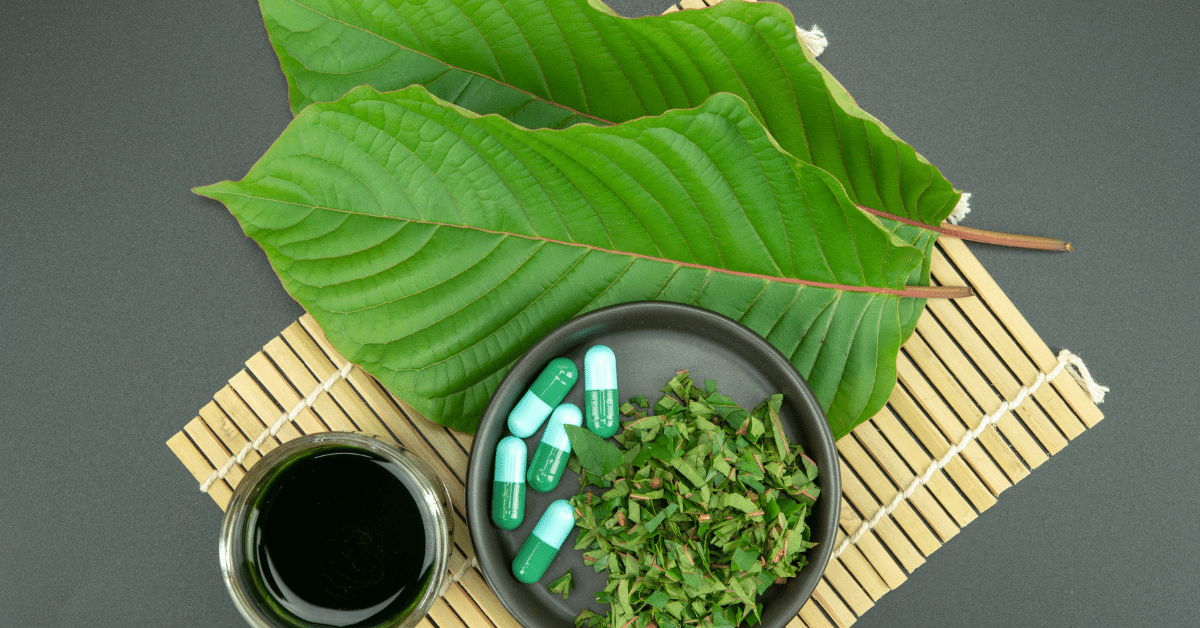The state legislature has made significant progress in deliberations on Kratom. Kratom’s a tree indigenous to Southeast Asia. Its leaves contain mitragynine, a chemical with properties similar to opioids like morphine. The House passed a bill in May 2022, authorizing new regulations on the sale, production and distribution of Kratom. The Michigan Senate’s now reviewing the bill passed by the House. It’s an important milestone in the ever-evolving discourse on medication, dependence and addiction because Kratom represents many of the same debates already ongoing regarding opioids and marijuana.
What Does Kratom Represent?
For a comprehensive run-down on what Kratom is, check out this article. The U.S. Food and Drug Administration (FDA) had issued a public health warning about products containing Kratom. A year prior to that article, Michigan mother Peggy LaPenna lost her son, Joey, to a Kratom overdose according to the Kent County medical examiner. That same year, nine other deaths had been reportedly linked to Kratom. Joey LaPenna’s death was notable in that he was one who already had a history with prescription drug abuse. He was no stranger to painkillers, including Xanax and myriad street drugs. None of those had killed him. It was Kratom that got him.
However, Kratom is legal under federal law. This is where it parallels marijuana in the national drug discourse. While marijuana is federally illegal, it’s been legalized by several states so far. The inverse has happened with Kratom. Kratom was never made illegal by the federal government, yet several states have banned it. Among them are Alabama, Arkansas, Indiana, Rhode Island, Vermont and Wisconsin. Several municipal governments have also taken it upon themselves to do the same according to the American Kratom Association (AKA). The AKA is a lobbying group that advocates in favor of regulating Kratom in ways that will keep it legal but safe.
Other parallels between Kratom and marijuana include the fact that the FDA classifies it as a psychoactive substance. The FDA adds that it carries the risk of “addiction, abuse, and dependence,” too. Moreover, Kratom is a naturally occurring substance like cannabis. Therefore, its proponents commonly cite its organic origin and centuries of use as evidence that it’s harmless or that it shouldn’t be a controlled substance. It’s potential to facilitate fatal overdose, however, likens it more to many opioids than to cannabis extracts or peyote.
Kratom in Michigan
Michigan hasn’t yet joined the growing list of states banning Kratom. The new legislation, however, does regulate the substance carefully. The bill passed by the House in May 2022 and subsequently reviewed by the Senate in September 2022 is now entitled, “The Kratom Consumer Protection and Regulatory Act.” It aims to go into effect as of January 1, 2023. It requires distributors, sellers and manufacturers to be licensed for their operations. The Department of Licensing and Regulatory Affairs is expected to produce a form for applications to do so. Applicants will have to pay application fees of $200, too. Other regulations control how Kratom products will be labeled.
Even though Kratom is a naturally occurring substance, it still has many of the same hallmarks of danger that synthetic opioids and other addictive substances carry. These even include its effects and intended uses.
“A combination of arthritis, spinal stenosis, fibromyalgia and more left me bedridden and every medical option suggested by experts at various institutions like the University of Michigan and Michigan State University left me in the same situation,” said Melody Woolf, a Kratom advocate and Kalamazoo resident, in an op-ed for Bridge Michigan in Sept. 2022. “Millions of other Americans like me use Kratom for many different wellness purposes, including increasing energy, managing anxiety and depression and alleviating withdrawal symptoms.”
In essence, it’s considered a safer substitute to the narcotics Americans have already come to know and fear. Matthew Breakey, an Eaton Rapids citizen, separately said as much to Bridge Michigan in 2020.
“I don’t want narcotics in my system,” Breakey said. “Like anything, I guess you could abuse [Kratom], but with moderation, it’s a good thing to take […] for pain and for energy.”
Moderation vs. Dependence 
One concern with the approach that uses but emphasizes moderation is that the same is said for all its rival substances. As early as 2002, an article published by the National Center for Biotechnology Information already characterized the issue as a neurobiological struggle. The abstract, in fact, provides what was already given information on the subject, which highlights the insurmountability of moderation.
“Opioid tolerance, dependence, and addiction are all manifestations of brain changes resulting from chronic opioid abuse,” the study reads. “The opioid abuser’s struggle for recovery is in great part a struggle to overcome the effects of these changes.”
This theoretical understanding has long been established among the medical science community. Marijuana and peyote are other naturally occurring substances that are also easily abused. In both cases, chronic users find that tolerance develops rapidly. In the case of marijuana, quitting doesn’t get rid of cravings in a timely manner either. Dependence is regularly reported for both marijuana and peyote. Kratom shows a stronger connection to fatal overdose, however, than either of them yet retains what appears to be comparable potential for dependence.
Is Kratom Addictive?
The Drug Enforcement Administration warns that Kratom can be psychologically and physically addictive. Keep in mind that the federal government attempted to classify Kratom as a Schedule 1 narcotic back in 2016. That would’ve juxtaposed the substance next to the likes of heroin and LSD. Lobbyists, advocates and users fought back, however. Kratom has even been touted as a means to break people free of opioid addiction or post-traumatic stress, arguments that have also been made about marijuana in the past.
It’s worth noting that those lobbyists and advocates don’t come out of nowhere whenever something threatens Kratom. Remember that the substance is already legal and always has been. As such, there’s an entire pharma sector that already has a stake in this fight regardless of whether or not it’s genuinely the saving grace those with chronic pain need. Kratom is an extract from a tree indigenous to Southeast Asia, chiefly Indonesia, Malaysia, Papua New Guinea and Thaiiland according to the FDA. That extract is a foreign export that has to be harvested, taken from mature leaves and ground down before being packaged.
In other words, it represents businesses that employ people. Not all of what you hear in its defense is necessarily coming from those who have your best interest in mind. Some sources are more interested in protecting a market segment. Most importantly, remember that you can definitely develop substance use disorder with Kratom alone. If you or someone you know is struggling with a Kratom habit, or any addiction to drugs, reach out to Landmark Recovery of Battle Creek or call 269-443- 0905.

Choose Recovery Over Addiction
We're here 24/7 to help you get the care you need to live life on your terms, without drugs or alcohol. Talk to our recovery specialists today and learn about our integrated treatment programs.




